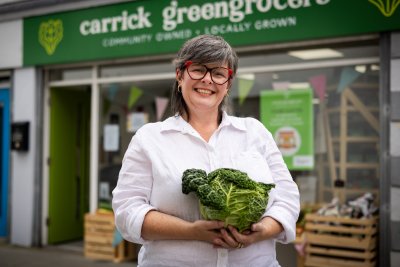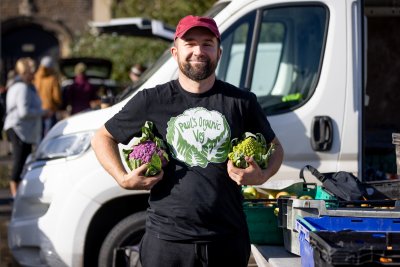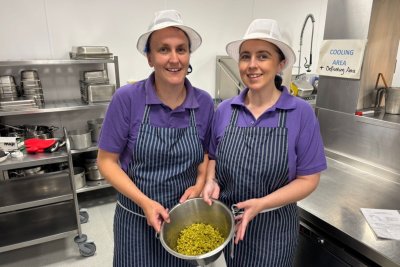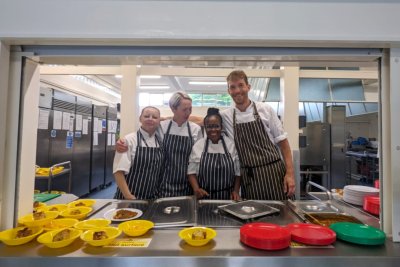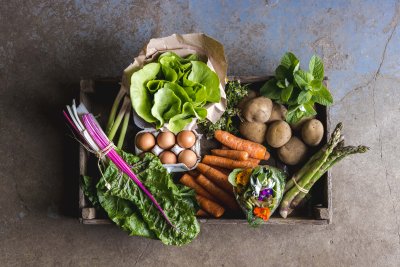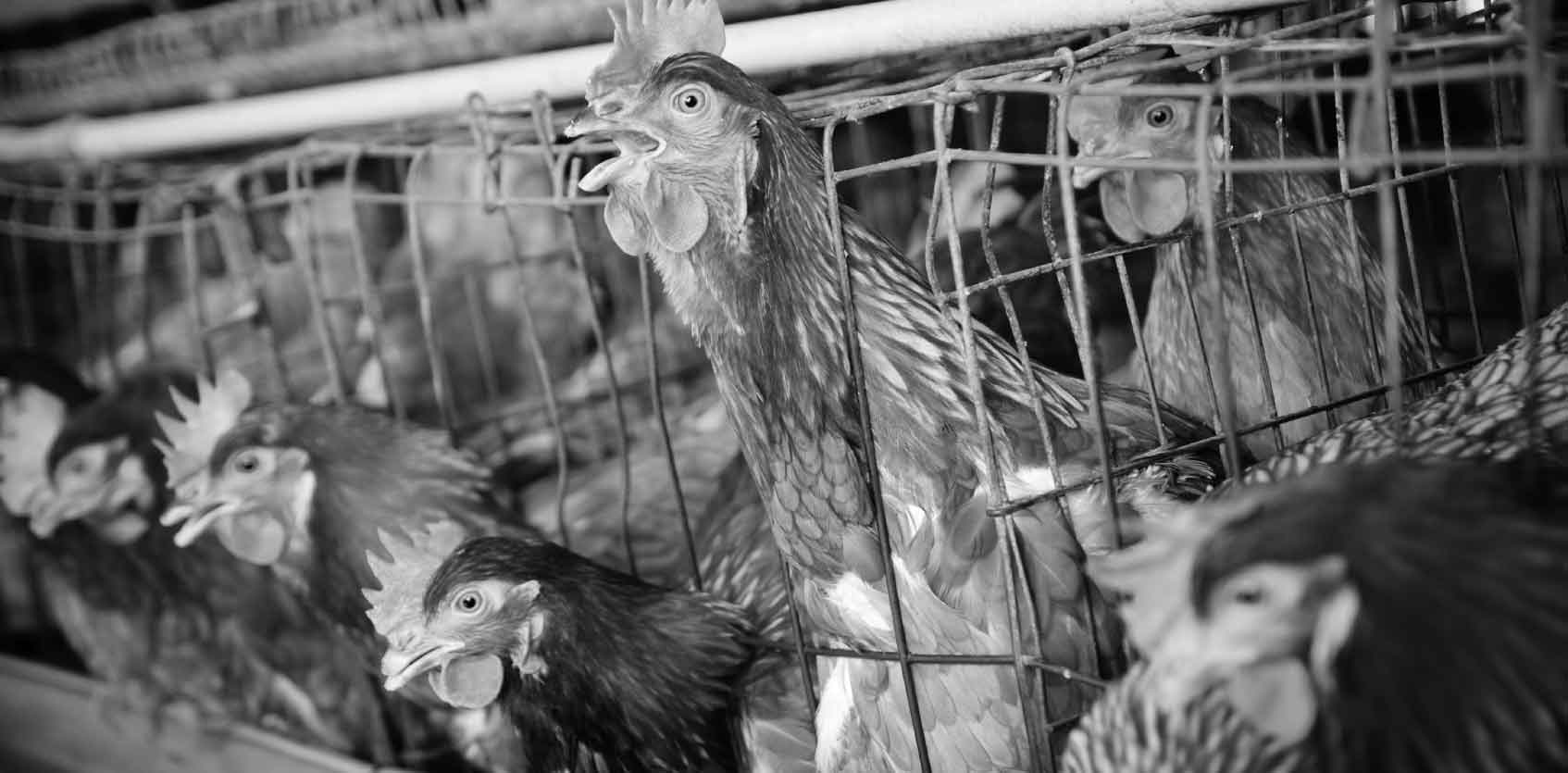 Sandeep Subba
Sandeep Subba

Sustain responds with dismay to US Ambassador claim that US food poisoning is lower than in the UK
The US Ambassador to the UK Woody Johnson was interviewed by the BBC Radio 4 Today programme (6 March, 07.30am). He said that the UK needed to include food and agriculture in future trade deals with the US, and claimed US food poisoning rates are lower than in the UK. Sustain responds.
Ambassador Johnson mounted a defence of American food and farming standards, telling an incredulous BBC interviewer John Humprhys that US food processing and hygiene standards are nothing to worry about. He said he would be happy to eat chlorine washed chicken and made a false claim that US food poisoning rates are lower than the UK's.
Kath Dalmeny, chief executive of Sustain responded:
"It is dismaying to hear the US Ambassador to the UK claiming that American food poisoning rates are lower than in the UK. This is simply not true. The US and UK Government's own figures show that food poisoning rates in the US are anything up to ten times higher than in the UK, and that 380 people died of salmonella food poisoning there, compared to none over the same period in the UK."
"The US Ambassador's staggering lack of knowledge about American food poisoning rates shows why science, values and public health must govern our decisions about future trade in food, not big dollars and bully-boy politics."
The Sustain alliance is campaigning for proper transparency and scrutiny of trade deals and the food and agriculture standards they support. Read our submission to parliament's International Trade Committee here; and our concerns about US food and farming standards in trade deals here.
Listen to the interview with the US Ambassador on the BBC Radio 4 Today Programme here. A transcript is below.
Wednesday 6 March 2019
Interviewer John Humphrys: Whatever trade deals we finally strike or fail to strike after Brexit, our relationship with the United States will be vitally important. We sell more to them than to any other single country including nearly £2bn worth of food and drink. Which is why so many eyebrows were raised at what the American Ambassador to this country, Woody Johnson, said at the weekend. Washington has made it pretty clear that it wants greater access to the British market for its food and the Ambassador wrote a piece for The Telegraph attacking Europe as a Museum of Agriculture, claiming there are too many myths over American farming and food practices. Woody Johnson is the Ambassador and he is on the line.
US Ambassador to the UK Woody Johnson: Good morning, John.
John Humphrys: A bit tough to call us a Museum of Agriculture just because we don’t like chlorine washed chicken.
Woody Johnson: The President has made it pretty clear that he would love to have a robust trade deal with the UK. And any trade deal that we do with the UK would have to include agriculture. Agriculture is extremely important to the President, we have farming in all the 50 states and 100 Senators are always interested in farming. We really don’t sell much to each other, in the big picture, in farming. So, to get a robust trade agreement that lifts all boats, the US and the UK, it has to include farming and farm products.
John Humphrys: But when you say that it’s not sustainable (this is what you said at the weekend) for the whole world to follow the EU’s Museum of Agriculture approach, it’s not quite clear what you mean by that. And you’ve got an awful lot of people very cross as you will very well know. The National Farmers Union (NFU) says, Britain has the third most affordable food in the world, produced to some of the highest animal welfare, food safety, environmental standards in the planet, ‘not my definition of a museum’, says Stewart Roberts.
Woody Johnson: OK. A lot of that is true. And I don’t think we want to lower any standards. We just want to have more trade between the US and the UK. And the UK has always been extremely competitive in anything that it has done. It’s a smaller country than some, but always been very competititve, so the farmers will be more than ready to compete in a new market, which as it leaves Europe, it will have to do. I think the farmers here will be extremely successful.
John Humphrys: The problems is we seem to have a different attitude to farmers or farming than in the US, Our former farming minister George Eustice described your animal welfare as ‘woefully deficient’. There is a general resistance, he say, Even acknowledging in the US the existence of sentience in farm animals which is quite extraordinary, he said. And it will strike many people as quite extraordinary.
Woody Johnson: Well, I think a lot of these statements have been used to create trade barriers. More than anything else. Our farms are owned primarily by individual families, over 90%, just like they are here.
My mother, who’s 98, was driving a tractor until her 90s on her organic farm. Not typical, wonderful woman, obviously, but not typical of American agriculture. American farmers care about their land just as much as they do here, and their animals.
I would submit that a lot of these statements are designed, perhaps by the EU, to create barriers to US farm products. And that is what I was trying to get at in that article.
John Humphrys: And what about the point that Mr Eustice [previously the UK farming minister] also made that in the court of public opinion if the choice is between the commercial interest of banks or the welfare of chickens, chickens will win every time, the sound of clucking chickens will never be far from the negotiating table.
Woody Johnson: Well I think the campaign against US farm products has been very, very successful, talking about chlorine and all this other stuff, but it’s really designed to reduce trade, and not increase trade. And as you leave the EU, and even now, we could gain a lot. We love British products. Lamb and Cheddar and all the things you produce. But we really aren’t exposed to it.
John Humphrys: If I were to ask you, on a personal note, if you were offered a choice between chlorine washed chicken or hormone injected beef. Which would you prefer a nice plate of organic chicken or beef that hasn’t had its bottom stuffed with hormones.
Woody Johnson: Well, see, that’s exactly the marketing campaign that’s been going on so far.
John Humphrys: Well, is it true?
Woody Johnson: If I had my choice between chicken that was clean and safe and it didn’t have campylobacter material and poisons on it, I would take the one that had been cleaned sufficiently. We have the lowest level of food poisoning, in the United States. And so I think that 250 million people in the US would demand, if they thought there was anything wrong with the safety of their chicken. We have a very active legal system and I think that would approach this. Most Americans would feel that our food is safe, cost effective and humane.
John Humphrys: What will Donald Trump have for dinner when he comes here for his state visit. I’m hoping you will confirm he is coming
Woody Johnson: I can’t confirm that but he’ll probably have Welsh lamb, I would imagine.
Good Food Trade Campaign: Campaigning for good trade that benefits people and the planet at home and overseas.
Sustain
The Green House
244-254 Cambridge Heath Road
London E2 9DA
020 3559 6777
sustain@sustainweb.org
Sustain advocates food and agriculture policies and practices that enhance the health and welfare of people and animals, improve the working and living environment, promote equity and enrich society and culture.
© Sustain 2026
Registered charity (no. 1018643)
Data privacy & cookies
Icons by Icons8
